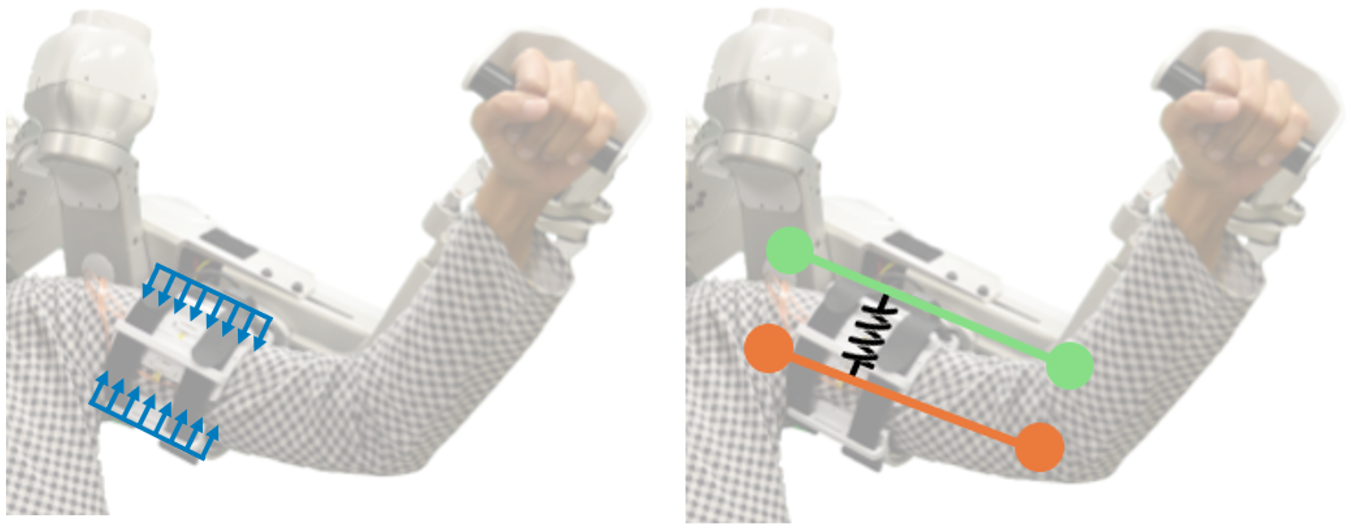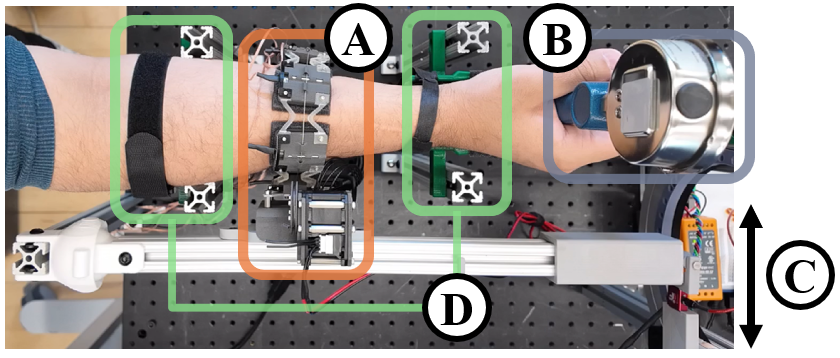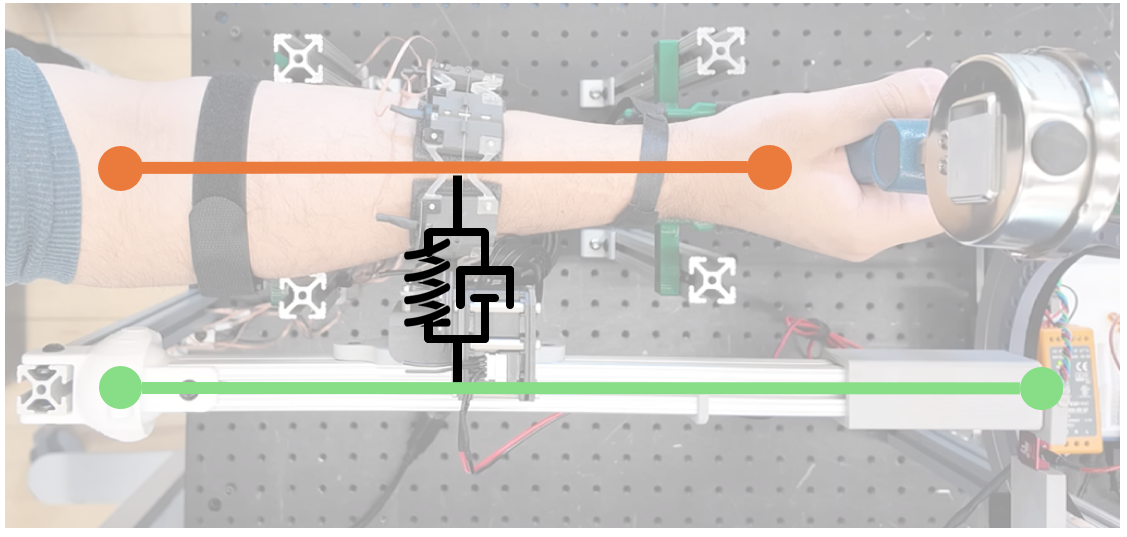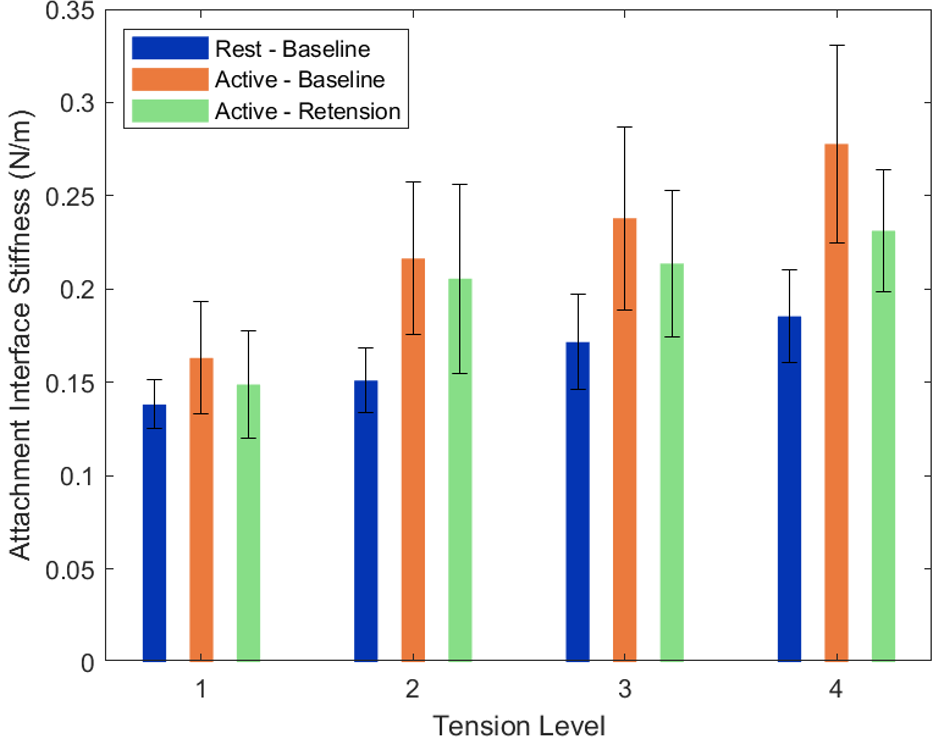Adaptive Interface Design and User Comfort for Wearable Arm Robots
This research examined how strap pretension and user muscle activation jointly influence physical comfort and interaction quality at forearm attachment interfaces. The study developed methods for actively modulating interface properties to optimize human-robot coupling during device operation.
Contributions:
Designed controlled human subject experiments (N=8) with systematic variation of 4 strap tension levels and 3 muscle activation conditions using randomized testing protocols
Implemented linear mixed-effects statistical modeling in R to isolate design variable effects while accounting for inter-subject variability and repeated measures
Developed novel actuated cuff with dual-motor tensioning system and 6-channel distributed FSR sensing for real-time interface pressure monitoring and control
Demonstrated quantitative relationship between strap pretension, muscle activation, and interaction port stiffness through systematic experimental validation
Collaborators: Victor Guzman, Stefano Dalla Gasperina, Ashish D. Deshpande




